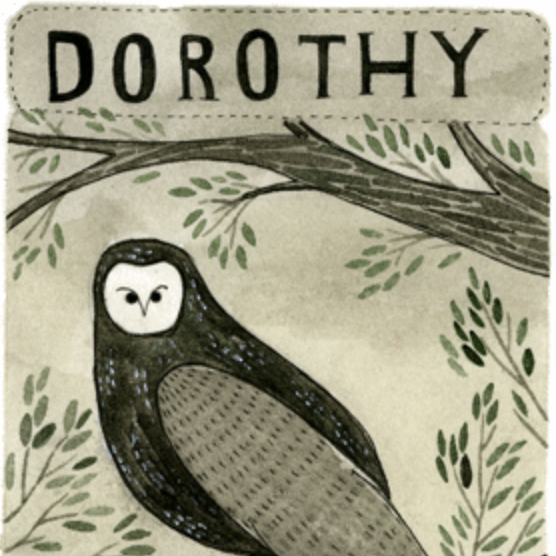Saidiya Hartman. Photo: © John D. and Catherine T. MacArthur Foundation. Used with permission (cropped). Alexis Okeowo profiles Saidiya Hartman and looks at the imaginative leaps taken in her book Wayward Lives, Beautiful Experiments, which recently won the National Book Critics Circle Award for criticism, rather than fiction or nonfiction. “Fact is simply fiction endorsed with state power,” Hartman told Okeowo, discussing the limits of the archive in telling stories of enslaved people. “Are we going to be consigned forever to tell the same kinds of stories? Given the violence and power that has engendered this limit, why should
Karla Cornejo Villavicencio. Photo © Talya Zemach-Bersin At the New Republic, David Klion looks at a new anthology of writing from The Atlantic from the last four years. Klion sees the magazine’s project as one of defending “American liberalism in the face of Trump’s clownish barbarism.” But, Klion argues, the default position of insistent reasonableness may have run its course: “What really comes through is the institutional voice of The Atlantic, which makes itself felt in nearly every contribution: clean, authoritative, high-minded, rigorously empirical, more than a bit self-righteous—and, once you’ve heard it enough times, utterly tedious.” Ottessa Moshfegh
Owl logo of Dorothy, a publishing project by Yelena Bryksenkova In the New York Times, Joshua Cohen reviews Don DeLillo’s new novel, The Silence: “DeLillo has never been content with merely reporting, however: He wants to tell us not just what-is, but how it feels, and it’s this ability to transcribe the moment’s emotion that constitutes his genius.” At Columbia Journalism Review, Jon Allsop looks at how “herd immunity” and a potential COVID-19 vaccine are covered by the press: “In the absence of hard facts, many journalists, especially on TV, elide doubts, or filter the story of the pandemic
Colson Whitehead. Photo: Chris Close The New York Review of Books has released its election issue. The magazine features dispatches and essays from Vivian Gornick, Hari Kunzru, Jacqueline Rose, Darryl Pinckney, and many more. Rose writes in her standout piece, “The Pleasures of Authoritarianism”: No point . . . asking how bad it can get, how far they are willing to go, or how on earth they can get away with it all. Going too far is the point. The transgression is the draw and the appeal.” A look at Barry Jenkins’s adaption of Colson Whitehead’s The Underground Railroad.
Leslie Jamison. Photo: Beowulf Sheehan In an op-ed for the Washington Post, author Jill Lepore urges us to “let history, not partisans, prosecute Trump.” “Surely, post-Trump, when that day comes, there will be investigations,” Lepore writes. “A bipartisan, 9/11-style commission to study the federal government’s response to the pandemic seems not only likely but essential. And Harvard Law School’s Mark Tushnet has argued for a non-prosecutorial, fact-finding “commission of inquiry” to investigate possible abuses of power by the Trump-era Justice Department. But the Trump administration is not Nazi Germany, nor is it a nation defeated in war. Its wrongdoing—a
Natalie Diaz Bhanu Kapil, Shane McRae, and Natalie Diaz are among the poets shortlisted for this year’s T. S. Eliot Prize. Five of the ten titles on the list are out from recently established presses, and three are debut collections. “Why do we believe one set of paranoid, questionable hypotheses and not another?” N. K. Jemisin introduces Time’s “100 Best Fantasy Books of All Time,” which presents influential works of fantasy fiction in chronological order, starting from the ninth century. For Jemisin, the genre is best thought of not as “mere entertainment,” but “as a way to train for
Isabel Wilkerson. Photo: © Joe Henson Ava DuVernay will direct the Netflix adaptation of Isabel Wilkerson’s Caste: The Origins of our Discontents. The longtime theater critic Ben Brantley reflects on his twenty-seven-year career as he gets ready to retire. In the New York Times’s “Exit Interview” column, Brantley tells Jesse Green what it feels like to be insulted by the likes of James Franco, Alec Baldwin, and Josh Brolin following critiques of their work: “I expected the blowback, and it came pretty quickly. The public put-downs from celebrity stars are to be savored, I think.” At the Covering Climate
Annette Gordon-Reed. Photo: Tony Rinaldo The American Booksellers Association is launching its “Boxed Out” marketing campaign today, with fourteen independent bookstores across the country participating in the drive to divert Amazon revenue to indies amid the ongoing pandemic and through the holiday shopping season. The campaign features storefront installations designed to mimic the look of brown cardboard boxes, and are printed with such declarations as, “Amazon, please leave the dystopia to George Orwell.” The Ford and Andrew W. Mellon foundations have named twenty creatives who will receive inaugural grants as part of their new fellowship, the Disability Futures initiative.
Don DeLillo. Photo: © Joyce Ravid At the New York Times Book Review, Dwight Garner considers Don DeLillo’s new novel, The Silence. Garner remains “as attracted as anyone else to stories of doomed airplane flights and intimations of the end of the world, and DeLillo mostly held me rapt,” but admits that the 117-page story “reads like the first two chapters of a disaster novel.” In the paper’s magazine, David Marchese asked the interview-shy author why a mention of COVID-19 in an early copy of the novel was later removed. DeLillo replied: “I didn’t put Covid-19 in there. Somebody
Carlos Lozada. Photo: Bill O’Leary Joe Klein weighs in on Carlos Lozada’s new book, What We Were Thinking: A Brief Intellectual History of the Trump Era. “In 2015, Carlos Lozada, the Washington Post’s Pulitzer Prize–winning book critic, took on a harrowing task: He read eight books ‘written’ by Donald Trump. Soon, he expanded the mandate, reading everything he could about Trump and the Trump era—150 books in all. It was an act of transcendent masochism, but we should be grateful he did it because What Were We Thinking looks past the obvious and perverse—that is, past Trump himself—to the
Walter Mosley. Photo: © WideVision Photo/Marcia Wilson Best-selling crime fiction novelist Walter Mosley will be awarded the National Book Foundation’s lifetime achievement award, making him the first Black man to receive the distinction. Mosley’s work has been adapted for film and TV, and has been recognized with the Edgar Award, an O. Henry Prize, and even a Grammy. Said foundation director Lisa Lucas: “His oeuvre and his lived experience are distinctly part of the American experience.” At Slate, listen to Louise Glück, winner of this year’s Nobel Prize for Literature, read three poems: “A Myth of Innocence,” “Crater Lake,”
Louise Glück. Photo: © Katherine Wolkoff/Macmillan Poet Louise Glück has been awarded the Nobel Prize for Literature. For more on Glück, see Dan Chiasson’s 2012 New Yorker essay, “The Body Artist,” in which he writes: “Her poems are flash bulletins from her inner life, a region that she examines unsparingly.” At The Intercept, Peter Maass argues that Glück should refuse the prize. Criticizing the Nobel committee’s decision to award the prize to Peter Handke last year, and writing about the 2018 Academy sexual misconduct scandal, Maass obsereves, “It is laughable and tragic that an award of such influence should
N. K. Jemisin. Photo: Laura Hanifin At Literary Hub, Aaron Robertson considers the New Yorker Union’s recent victory in their campaign to end “at will” employment at the magazine. At the New Republic, Alex Shephard adds his voice to Nobel Prize speculation season. In 2016, Shephard vowed that he would eat his copy of the album Blood On the Tracks if Bob Dylan won the Nobel. (Dylan did, Shephard didn’t.) Since then, Shephard has learned to embrace the prize’s unpredictability: “The only certainty about the Nobel Committee is that it does what it wants, while the only certainty about
Akwaeke Emezi. Photo: © Scottie O. The New Yorker Union has reached an agreement with management to add a “just cause” clause to their collective bargaining agreement, ending the era of at-will employment. Senator Elizabeth Warren, representative Alexandria Ocasio-Cortez, and former attorney general Eric Holder had joined a boycott of last night’s festival events before an agreement had been reached. The president of the NewsGuild of New York, Susan DeCarava, told CNN: “I do want to give some credit to management at the New Yorker for finally being able to listen and hear what their employees were saying and
Ocean Vuong. Photo: Tom Hines The National Memo has an excerpt of Joe Conason’s preface to Without Compromise: The Brave Journalism that First Exposed Donald Trump, Rudy Giuliani, and the American Epidemic of Corruption, a collection of writings by legendary investigative reporter Wayne Barrett (1945–2017). As a longtime writer at the Village Voice, Barrett wrote articles about city politics and corruption that “made him the scourge of City Hall, the bane of several mayors, and an essential member of New York’s pugnacious press corps.” Barrett published deeply critical books about Rudy Giuliani (Grand Illusion, 2006) and Donald Trump (Trump:
Maggie Haberman. Photo: Andrew Lih The BBC rounds up the global media’s reaction to President Trump’s positive COVID-19 test. In a story filed at 4:10 AM EST today, Alexis C. Madrigal and Robinson Meyer ponder “Now What?” In David Remnick’s report on the news, the New Yorker editor chooses his words carefully: “In the coming days, it is likely that commentators will respond to the demands of both decency and a sincere desire to wish anyone with a serious illness well and a quick recovery.” Maggie Haberman has been tweeting continuously since the news broke shortly before 1 AM,
Kevin Young. Elizabeth Warren and Alexandria Ocasio-Cortez have decided not to participate in the New Yorker fest, acting in solidarity with the New Yorker Union, which is planning a one-night picket on Monday. The Union is asking to negotiate with management over a just cause provision in their contract. Warren and Ocasio-Cortez told the New York Times, “The NewsGuild and The New Yorker Union are fighting for basic dignity on the job, and we stand with them. We will not cross the picket line and attend the festival unless the New Yorker leadership agrees to the union’s demands—they should
Viet Thanh Nguyen Twitter rounds up global media coverage of last night’s presidential debate. The New Yorker Union has tweeted a thread about why they’ve decided to file an “Unfair Labor Practice” charge against their employers. According to the union, it wanted to discuss a just cause provision but management “walked away from negotiations.” The thread goes on to share five examples of “bosses’ unprofessional behavior.” The Booker Prize award ceremony has been postponed two days to accommodate the publication of Barack Obama’s much-anticipated memoir. Gaby Wood, the Booker Foundation’s literary director, said in a statement that the unusual
Yaa Gyasi. Photo: Penguin Random House At Nieman Lab, a guide to covering a contested election. The National Task Force on Election Crises have created resources for newsrooms for the days and weeks following November 3rd, when the election result may not yet be clear. Tonight, the New Republic’s salon series continues, with a Brooklyn Book Festival Bookend event featuring Yaa Gyasi. Via livestream, Gyasi will talk with novelist and critic Rumaan Alam about Gyasi’s new novel, Transcendent Kingdom. Literary Hub runs down fourteen new books to read this week, including Marilynne Robinson’s Jack, Legacy Russell’s Glitch Feminism, and
Namwali Serpell. Photo: Peg Skorpinski Upon learning that she had won the Arthur C. Clarke Award for her first novel, The Old Drift, the US-bazed Zambian writer Namwali Serpell announced that she would donate the prize money to the Louisville Community Bail Fund, which assists protestors of Breonna Taylor’s murder by the police. She has also pledged to split the fee for her Harper’s story “The Work of Art” with the magazine’s unpaid interns. Print-book sales continue to grow, with unit sales 16.4 percent higher in the week that ended on September 19 than in the same week of



















